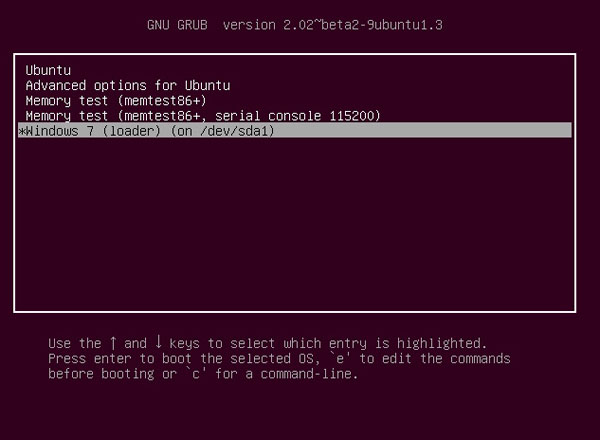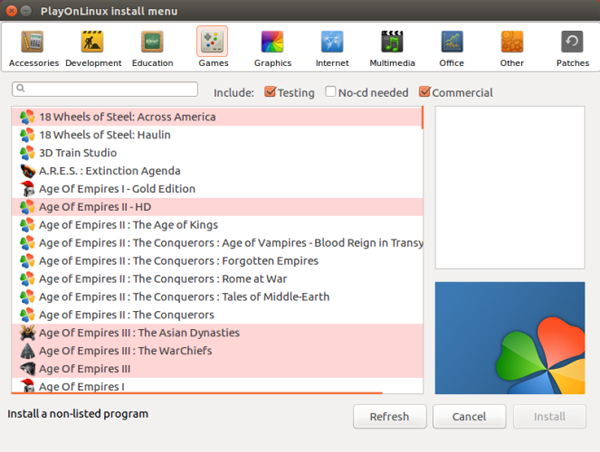Seven reasons why you should dual-boot your Linux system
One of the most important components of a computer is the operating system. In fact, a powerful operating system should have software compatibility and be able to smoothly realize the interaction between hardware and software. For most users, Linux plus Windows or Linux plus Mac OS are often the ideal combinations.
In daily use, we can use dual systems on the same device. Windows and Linux each have their own strengths. Linux offers great customizability, security advantages, a dedicated open source community, and mostly free versions. Windows or Mac OS also have their own advocates. Their advantages are more native applications and lower operating complexity.
But why not have both? Below we will take a look at the five reasons why you should choose a dual-boot system, and the two negative reasons why you should not choose a dual-boot system.
Should use dual systems

1. Games: both old and new

Windows’ native games are better, while Linux has a more ideal programming environment. Although some games have begun to be launched across system platforms, there is no doubt that Windows is still the best system option for gamers.
If you want to play some older games (such as 16-bit games), then modern Windows architecture often cannot get the job done. And Linux supports 16-bit programs well with both 32-bit and 64-bit systems. Thanks to Wine (Wine Is Not an Emulator), most Windows applications run smoothly. Want to play both old and new games? Dual systems can help you solve the problem.
2. Host
When running the operating system in a native manner (unlike a virtual machine), the operating system has full access to the host device. Therefore, dual systems mean that the system itself has more comprehensive access to various hardware components, and its speed is generally higher than that of virtual machine solutions.
3. Compatibility
You may have discovered that some commonly used programs do not work well under certain operating systems, such as Netflix. Although several Netflix solutions are also available for Linux systems, users need to modify them. Considering that most friends will focus on a single device, such as a laptop, installing dual systems can better ensure that you have smooth access to all applications and services.
4. The programming effect on the Linux platform is often better
In terms of programming, Linux usually has many advantages. The system itself is free and supports languages such as Java, PHP, Ruby, Perl, Python, and C/C++, plus various coding applications and bash.
Planning to develop apps for Windows or Mac platforms? There is still no problem using Linux, but in general native development is often better. For example, Windows offers the extremely powerful Visual Studio for Windows application development.
5. Very, very simple to use
Although the command line will give novice users the first impression of being difficult to use, Linux actually has excellent ease of use. After all, Linux is an operating system and is not fundamentally different from Windows and Mac OS.
Similarly, dual system booting is also easy to implement. There are currently a large number of such tutorials available online. You can install Linux as a second system and select it at startup. Then again, file sharing isn't a problem since Linux can access most Windows files.
Reasons why you shouldn’t use dual systems
Having said so many advantages, let’s look at some of the disadvantages of using dual systems.
1. Increased complexity
Although the installation process is not complicated, file sharing between the two systems may cause some problems. Linux is generally easy to access Windows files, but Linux files are difficult to access through Windows. Linux mostly uses the ext4 file system, while Windows requires third-party applications to be compatible with ext4. In addition, although the installation is very simple, uninstalling it is more troublesome.
Generally speaking, the dual system setup requires patience and wisdom from managers to adjust. If you do not have the ability to troubleshoot some minor faults, it is best not to rush to use dual systems.
2. Virtual machines can basically achieve the same effect
As mentioned before, virtual machines can be hosted within an operating system to implement the functions of another operating system. This method can run Linux as a virtual machine in other operating systems, and vice versa. In addition, installation and uninstallation are easier and do not affect the boot loader.
Choosing a virtual machine solution requires more hard drive space and takes up more resources than running the Linux distribution directly. This means that some older hardware may not be a good candidate for a virtual machine solution. Additionally, the operating system within the virtual machine may not have full access to the PC. For example, I personally had an issue with Ubuntu not being able to use the DVD drive installer in a virtual machine.
Although dual system has its own advantages and disadvantages, it can indeed play a huge role in improving compatibility, security and functionality. And for those who want to try out the Linux ecosystem, this is undoubtedly the most ideal solution.

Hot AI Tools

Undresser.AI Undress
AI-powered app for creating realistic nude photos

AI Clothes Remover
Online AI tool for removing clothes from photos.

Undress AI Tool
Undress images for free

Clothoff.io
AI clothes remover

AI Hentai Generator
Generate AI Hentai for free.

Hot Article

Hot Tools

Notepad++7.3.1
Easy-to-use and free code editor

SublimeText3 Chinese version
Chinese version, very easy to use

Zend Studio 13.0.1
Powerful PHP integrated development environment

Dreamweaver CS6
Visual web development tools

SublimeText3 Mac version
God-level code editing software (SublimeText3)

Hot Topics
 1378
1378
 52
52
 What is Linux actually good for?
Apr 12, 2025 am 12:20 AM
What is Linux actually good for?
Apr 12, 2025 am 12:20 AM
Linux is suitable for servers, development environments, and embedded systems. 1. As a server operating system, Linux is stable and efficient, and is often used to deploy high-concurrency applications. 2. As a development environment, Linux provides efficient command line tools and package management systems to improve development efficiency. 3. In embedded systems, Linux is lightweight and customizable, suitable for environments with limited resources.
 Using Docker with Linux: A Comprehensive Guide
Apr 12, 2025 am 12:07 AM
Using Docker with Linux: A Comprehensive Guide
Apr 12, 2025 am 12:07 AM
Using Docker on Linux can improve development and deployment efficiency. 1. Install Docker: Use scripts to install Docker on Ubuntu. 2. Verify the installation: Run sudodockerrunhello-world. 3. Basic usage: Create an Nginx container dockerrun-namemy-nginx-p8080:80-dnginx. 4. Advanced usage: Create a custom image, build and run using Dockerfile. 5. Optimization and Best Practices: Follow best practices for writing Dockerfiles using multi-stage builds and DockerCompose.
 How to start apache
Apr 13, 2025 pm 01:06 PM
How to start apache
Apr 13, 2025 pm 01:06 PM
The steps to start Apache are as follows: Install Apache (command: sudo apt-get install apache2 or download it from the official website) Start Apache (Linux: sudo systemctl start apache2; Windows: Right-click the "Apache2.4" service and select "Start") Check whether it has been started (Linux: sudo systemctl status apache2; Windows: Check the status of the "Apache2.4" service in the service manager) Enable boot automatically (optional, Linux: sudo systemctl
 What to do if the apache80 port is occupied
Apr 13, 2025 pm 01:24 PM
What to do if the apache80 port is occupied
Apr 13, 2025 pm 01:24 PM
When the Apache 80 port is occupied, the solution is as follows: find out the process that occupies the port and close it. Check the firewall settings to make sure Apache is not blocked. If the above method does not work, please reconfigure Apache to use a different port. Restart the Apache service.
 How to start monitoring of oracle
Apr 12, 2025 am 06:00 AM
How to start monitoring of oracle
Apr 12, 2025 am 06:00 AM
The steps to start an Oracle listener are as follows: Check the listener status (using the lsnrctl status command) For Windows, start the "TNS Listener" service in Oracle Services Manager For Linux and Unix, use the lsnrctl start command to start the listener run the lsnrctl status command to verify that the listener is started
 How to monitor Nginx SSL performance on Debian
Apr 12, 2025 pm 10:18 PM
How to monitor Nginx SSL performance on Debian
Apr 12, 2025 pm 10:18 PM
This article describes how to effectively monitor the SSL performance of Nginx servers on Debian systems. We will use NginxExporter to export Nginx status data to Prometheus and then visually display it through Grafana. Step 1: Configuring Nginx First, we need to enable the stub_status module in the Nginx configuration file to obtain the status information of Nginx. Add the following snippet in your Nginx configuration file (usually located in /etc/nginx/nginx.conf or its include file): location/nginx_status{stub_status
 How to set up a recycling bin in Debian system
Apr 12, 2025 pm 10:51 PM
How to set up a recycling bin in Debian system
Apr 12, 2025 pm 10:51 PM
This article introduces two methods of configuring a recycling bin in a Debian system: a graphical interface and a command line. Method 1: Use the Nautilus graphical interface to open the file manager: Find and start the Nautilus file manager (usually called "File") in the desktop or application menu. Find the Recycle Bin: Look for the Recycle Bin folder in the left navigation bar. If it is not found, try clicking "Other Location" or "Computer" to search. Configure Recycle Bin properties: Right-click "Recycle Bin" and select "Properties". In the Properties window, you can adjust the following settings: Maximum Size: Limit the disk space available in the Recycle Bin. Retention time: Set the preservation before the file is automatically deleted in the recycling bin
 How to add a listener in oracle
Apr 11, 2025 pm 08:51 PM
How to add a listener in oracle
Apr 11, 2025 pm 08:51 PM
To add an Oracle listener: 1. Create a listener configuration file that contains configuration parameters. 2. Save the configuration file at $ORACLE_HOME/network/admin/listener.ora. 3. Use the lsnrctl start LISTENER command to start the listener. 4. Use the lsnrctl status LISTENER command to verify that the listener is running.






